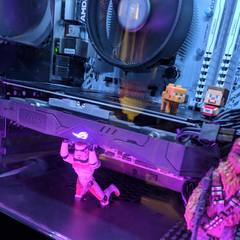Ssd data loss without power
12 hours ago, Pc6777 said:does data integrity have to do with usable shelf life or just data stored on it? and I thought ssds needed to be powered every so often because they require small amounts of electricity to store data and cant store that small amount of electricity forever so booting it every so often would "refill" its electricity so it could keep storing data.
Over time charge detrapping will change the voltage threshold distribution of the cell. When reading the data you're checking several reference voltages to determine the overall value so shifting and widening of of these distributions makes data harder to read. Modern controllers are able to check and rewrite blocks that are error-prone when powered on. One method used is to recharge the cells, however due to the nature of NAND you can only increase voltage. Since shifting and widening is not uniform, that is to say different for higher and lower voltage states, this is generally used instead to counter other effects (e.g. program disturb, which is nonetheless related to retention time since it's a factor both of active and power-off conditions).
Read here for more - specifically see Figure 18 on pg. 14.


















Create an account or sign in to comment
You need to be a member in order to leave a comment
Create an account
Sign up for a new account in our community. It's easy!
Register a new accountSign in
Already have an account? Sign in here.
Sign In Now